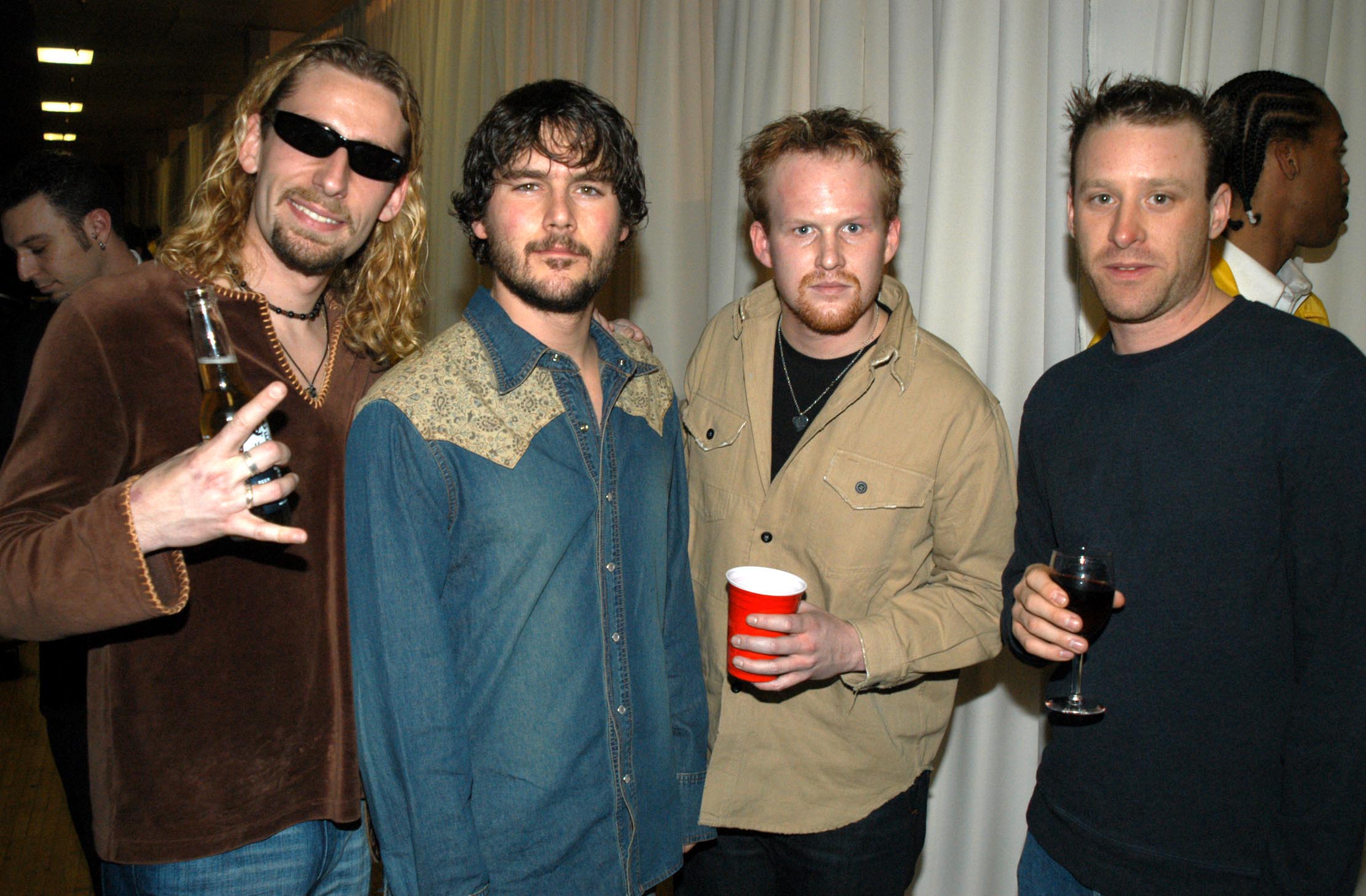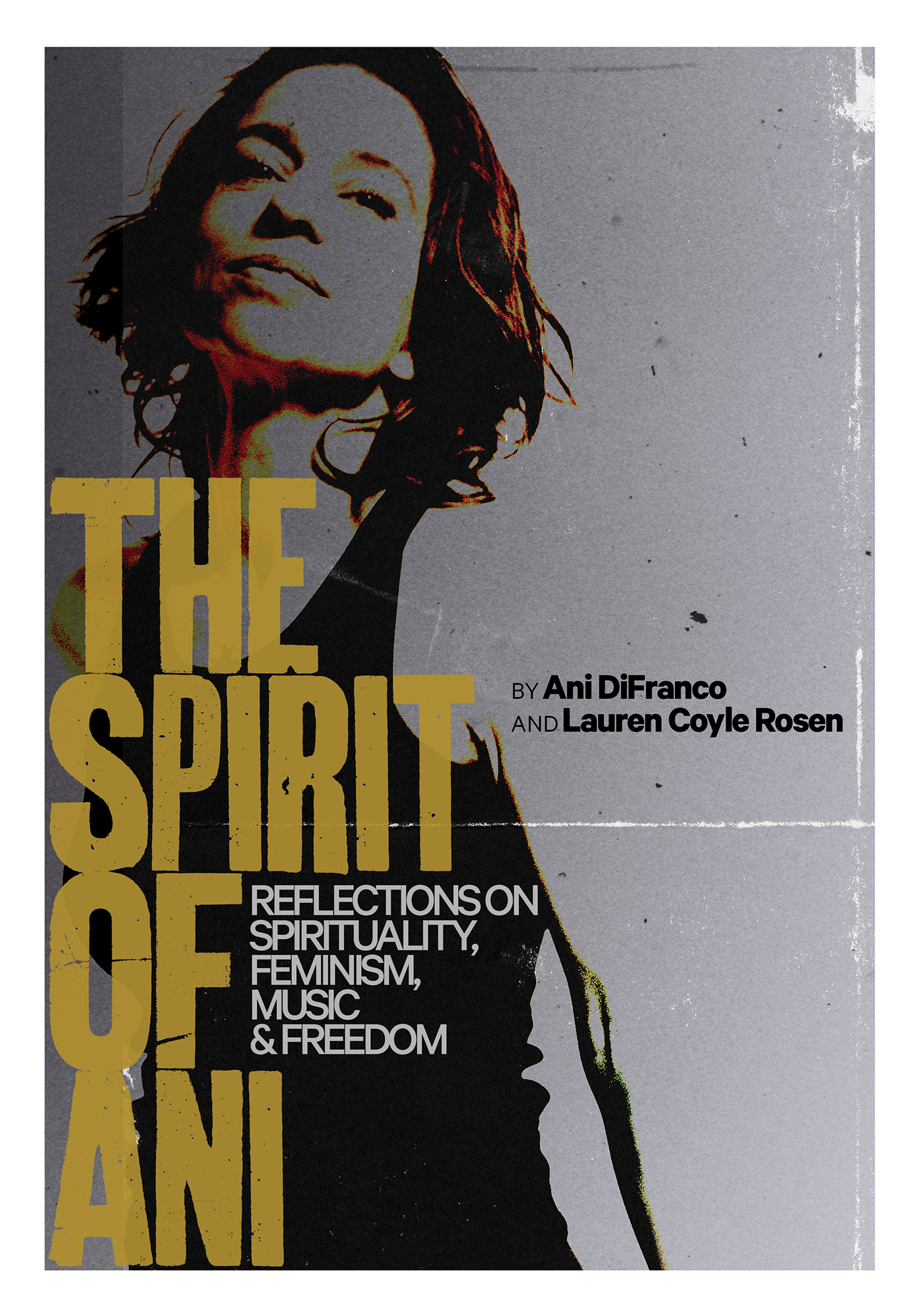It's Weird '90s Week on Stereogum. All week long we're looking at the strangest musical moments and trends of the decade. Check out more here.
//
I got married a few years ago. As part of my bachelor party, my kind and thoughtful friends paraded me around the Williamsburg, Brooklyn area -- where at the time I lived, and which since 2000 has had the reputation of being the epicenter of the American hipster -- while wearing the following lovingly assembled uniform that my friends had gone to great length to purchase from eBay: camouflage parachute pants with tiny America flags emblazoned upon them; a baseball cap sporting the Black Eyed Peas logo; and, the piece de resistance, a 2009 Nickelback tour T-shirt. "We couldn't think of anything that would make you angrier," one of my friends said, accurately.
They smiled with demonic pride every time I told a sneering and/or bewildered bartender that I was wearing this all against my will. One such bartender replied: "Oh yeah, we were making fun of you."
Some of those friends are huge music fans that are up on the latest microtrends and spent most of that evening talking about Channel Orange. But even the most casual, one-album-a-year music fan knew that there was no band more embarrassing to be caught liking in public than Nickelback. (I still have the shirt, by the way. One of these days I might wear it to SXSW.)
Oh, how we love to mock the proud and mighty Nickelback. In 2011 fans of the Detroit Lions, a sporting team of some renown, started a petition to have Nickelback stripped of their Thanksgiving Day halftime duties and replaced by a more reputable musical act. In 2013, Public Policy Polling famously asked people what they liked more: Congress or Nickelback. (That sounds brutal, but at least the band won the poll.) Meanwhile, accusing unpopular political figures such as Ted Cruz or Rahm Emmanual of liking Nickelback is a growing trend.
"Trump Likes Nickelback" sign appears at Trump rally. This sentiment has also been following Cruz cc @HallieJackson pic.twitter.com/i9K72ihRqC
— Ali Vitali (@alivitali) January 9, 2016
Last week another poll unfavorably compared the likely Republican presidential nominee to the band, drawing the attention of Stephen Colbert.
[videoembed size="full_width" alignment="center"]
[/videoembed]
If UrbanDictionary is to be believed, there's even a prank ("Nickelbacking") in which teens force their friends to listen to Nickelback over the phone.
So it's not a huge surprise that in 2013, readers of Rolling Stone voted Nickelback the second worst band of the '90s in an online poll, sandwiched right between Creed and Limp Bizkit. At first blush, this placement felt unfair and anachronistic to me. While Nickelback did release two albums in the '90s, they didn't make much of an impact in America until their 2001 album Silver Side Up and the hit single "How You Remind Me." There will be a discussion of their musical merits in a bit, but it would be a woeful retelling of history to present them as much of a concern during the Blossom and Hootie epoch.
But the more I thought about the judgment put forth by the readers of Rolling Stone, the more correct it felt on a less factual but more platonic level. As an actual, real-world group that tours and makes albums, Nickelback are barely a '90s band. They technically fit, though the designation doesn't feel correct. But as a stand-in for several ideas, trends and movements that came to a boiling point two decades ago, Nickelback are the most '90s band possible.
Twenty years ago this month, Nickelback released their debut album Curb, which was paid for by a grant from the Canadian government. If you want to use this occasion as a chance to make a joke about the evils of socialism, I won't expressly encourage you, but I also won't stop you. (And in case you're wondering, the name Nickelback allegedly came from their bassist, a Starbucks barista who often had to give customers a "nickel back" in change. A likely story.)

Curb is obviously both a product of its time and of a young band trying on different identities to see what fits. There are Alice In Chains-esque minor key spooky parts, washes of very mild psychedelia, and some Pantera-esque thrashing about, all relatively transgressive poses the band would shed as they moved towards a more big-tent, mainstream rock sound. Also, about a third of this album's lyrics seem to consist of frontman Chad Kroeger going "yeaaaaahhhhhh" in an exaggerated Vedder/Staley cadence.
Though they wouldn't hit it big for five more years, it makes sense that Nickelback debuted when they did. By 1996, Nirvana were gone, Pearl Jam were self-consciously retreating from the spotlight, Alice In Chains had already released their last album with frontman Layne Staley, and Soundgarden would soon release their last album before breaking up. Substance abuse, depression, fame, in-fighting, and the grind of the music industry had taken their toll on the Big Four of the grunge revolution.
[videoembed size="full_width" alignment="center"]
[/videoembed]
Without them, Bush, Sponge, Silverchair, and other scrunge bands started competing with each other to see who could get the rock radio money that Vedder and Cornell were leaving on the table. By this time, critics and people that we weren't quite calling hipsters were very over drop-d tuning and calculated, directionless angst, and the idea that rock was passé, and we should all go listen to dance music started making the rounds, as inevitably happens every few years or so.
But you can't cool-shame away audience demand, and people were eating this stuff up. Authenticity was still a big enough thing back then that Gavin Rossdale felt the need to hire Steve Albini to produce one of Bush's albums and namecheck the Jesus Lizard, but that hangover would fade quickly. Pretty soon, bands of this nature, and their even more lamentable descendants, were the only bands some rock radio listeners could hope to hear.
But let's pivot away from aesthetic concerns for a moment. As I've discussed around these parts before, the Telecommunications Act Of 1996 drastically overhauled the media world, and removed regulations against how many outlets any one company could own. Before long, the Texas radio conglomerate Clear Channel, now known as iHeartMedia, Inc., began gobbling up as many radio stations as it could get its hands on. Local programmers that knew the tastes of their market were out. Instead, playlists were dictated by extensive market research, which is to say, fear. In the case of rock radio, female artists were out, as was anyone not on one of the few major labels left. The number of different songs played in a day, or in an hour, kept decreasing, and as music fans started tuning out terrestrial radio and turning to the internet, satellite radio and other sources for new sounds, programmers clutched their pearls and doubled and tripled down, playing a handful of (usually formulaic) hits every hour. If you didn't like Nickelback but lived in town with a rock station, there was a good chance you kept hearing their songs whether you liked it or not. (For the record, I had no idea if New York still had a rock radio station before I started reporting this piece. Turns out it doesn't.)
In 2005, The New York Times reported on the state of rock radio. By then, rock stations in Boston, Atlanta and Houston had flipped, in some cases almost literally overnight, to formats ranging from talk radio to Spanish-language pop. While some of the more metropolitan stations were favoring young artists like the Strokes, Yeah Yeah Yeahs, and Jimmy Eat World, most of the remaining stalwarts played it as safe as possible: "The format in the last couple of years has gone through an identity crisis," said Kevin Weatherly, program director of KROQ, a closely watched alternative powerhouse in Los Angeles. "You have stations that are too cool, that move too quickly and are only playing the coolest music, which doesn't at the end of the day attract enough of the audience. Or you have the other extreme, dumb rock, red-state rock that the cool kids just flat out aren't into."
He said it, not me.
[videoembed size="full_width" alignment="center"][/videoembed]
No band benefitted from rock radio conservatism more than Nickelback. Billboard named them Band Of The Decade, and their single "How You Remind Me" the rock song of the decade. As Kroeger's estranged better half Avril Lavigne reminded haters on Twitter last week, Nickelback have sold more than 50 million albums, and have had way more hit singles than you're emotionally prepared to process. They are far and away the biggest rock band in the world, and they rival most pop icons in terms of sales and spins, if not goodwill.
Hey @ENews and everyone writing these articles.... grow up. https://t.co/KShskEcIFM this is extremely rude and uncalled for
— Avril Lavigne (@AvrilLavigne) May 12, 2016
@Nickelback is one of the of the highest selling rock bands of the past 2 decades selling more than 50 million albums worldwide .....
— Avril Lavigne (@AvrilLavigne) May 12, 2016
17 #1 HIT SINGLES!!!! What an epic accomplishment!!!! @Nickelback is adored by millions worldwide !!! I've seen their sold out shows!!!
— Avril Lavigne (@AvrilLavigne) May 12, 2016
In the 2014 film Captain America: The Winter Soldier, Steve Rogers discovered that Hydra, the supervillain organization he thought he defeated in the first film, not only still existed, but those Nazi bastards had all infiltrated SHIELD, the supposed good guys of the Marvel universe, and were using their influence to sow discord and havoc in the world. In the same way, Nirvana and Pearl Jam were often said to have killed off not only hair metal, but the MOR format as a whole. Alternative radio was the only game in town for rock bands in the '90s, so if you wanted airplay, you at least had to pretend to be weird. For a little while, at least. This is why Nickelback presented themselves as grunge acolytes on early singles like "Leader Of Men," but after the success of their 2005 singles "Photograph" and "If Everyone Cared," Kroeger and company were comfortable revealing their true form, power-ballad crafters in the maligned but lucrative tradition of Foreigner, Journey, and Whitesnake, i.e., the very thing Pearl Jam were supposed to have stopped. Eventually, they'd just say "fuck it" and hire Mutt Lange to gloss up their album Dark Horse.
It's here that I should admit that the counterintuitively cool move would be to defend Nickelback as criminally overlooked geniuses. (It's not like I haven't done such a thing before.) In the attention economy, shocking, everything-you-know-is wrong opinions (Radiohead are bad! Kale will kill you!) will get many more clicks than saying, "This thing largely thought of as good or bad is in fact good or bad." And hey, if you actually like something that's widely maligned or hate something that's commonly praised, then you do you. We all have a few outlier opinions. There's nothing more subjective than opinions and art. But if you're trying to blow people's minds with how different you are, then you're basically that guy at the party that wants a medal for speaking truth to power, re: the Beatles being overrated. (I feel like we've all met this dude at some point in our lives.)
So it is with that in mind that I must admit that after spending some time with the Nickelback catalog (me to the feline companion I spend my afternoons with, after cueing up their greatest hits album: "How are there 19 songs on this?"), I must report back that I do, in fact, not like Nickelback. I'm sure you're absolutely shocked by this turn of events.
Nickelback don't even get mentioned on Stereogum, except when the Black Keys' Patrick Carney picks a fight with them. I can't imagine an activity more redundant than explaining to Stereogum readers why Nickelback are bad, and in many ways their music is the least notable thing about them, so let's keep this quick.
The problem is not that all their songs sound the same or are too radio-friendly, as I'm more than happy to say nice things about Green Day. It's that the power ballads are achingly insincere and don't rise to the level of cheese where you kind of like the song even though you know it's too corny to admit to liking it. These guys don't have a "I Wanna Know What Love Is" in them. They're never sincere enough to create kitsch. There's nothing in their catalog that some future Will Ferrell will want to use ironically in whatever we call "bro comedy" two decades from now.
Also, it all just sounds bad on a purely sonic level. Though their lyrics are filled with odes to hedonism, strippers, and that discount booze from Sam's Club life, their (I don't have quote marks big enough) "rock" songs are puffed up with production techniques intended to make them sound like Mt. Rushmore but which leave them completely devoid of mischief, menace, elation, tension, swing, or anything other than a sound that signifies "this is a loud guitar. You like that sort of thing, right?" (To be fair to the 'back, this is a problem applicable to most of the bands that regularly get rotation on rock stations these days.)

Machoism on its own gets boring fast. All the great dude rawk bands had some other element, from Eddie Vedder's earnestness to Robert Plant's flower child mysticism, to level things out. Instead, Nickelback offer up songs like "S.E.X.," or "Something In Your Mouth," an ode to a "Pretty little lady/ with the pretty pink thong." (I'd keep going, but it could turn into a HR situation.) What's even worse is their "we like fucking" songs are so blandly written that they're barely worth getting offended at. You can never shake the feeling with this band that they're just checking "fuck song for a strip club," "tough song for a Transformers trailer," "inspirational ballad for a network drama" off a list before they remove their Tapout t-shirts and head home to the suburbs.
[videoembed size="full_width" alignment="center"]
[/videoembed]
All that said, "This Is How You Remind Me" is a good song. It's the only thing they've done that I can imagine would be fun to sing at karaoke. That brief hiccup before "I've been down" is a cruelly effective hook. It would be intellectually dishonest for me not to concede that.
I can't deny that Nickelback are an easy, deserving target, and I do subscribe to the idea that when bad art is popular, it lowers standards and makes the world a more mediocre place. But there's something about Nickelback as the ultimate punchline that bothers me, and it's not just because it's just too easy. (It's also worth pointing out that Nickelback are far from the worst band around. Ladies and gentlemen, I submit for your approval: Attila.) While some people simply don't like this band, there's a troubling undercurrent that people use attacking Nickelback as a way to feel superior to their perceived fanbase, which is to say working class people, people who aren't into irony, who largely don't live in metropolitan areas, people who use the radio to discover music. This is a bit of a generalization, as any band that sells 50 million albums has fans all over the place, and Nickelback has headlined Madison Square Garden, but I don't think anyone will be shocked by the revelation from this breakdown that Nickelback is popular in the red states.
Head to the comments section of any Nickelback video on YouTube (I feel like quoting them would be unfair) and you'll notice a common set of themes emerging, with fans declaring that Nickelback are the only real rock band left, and wondering why people hate this band so much, why they don't see the beauty and emotion in Chad's words, and how could anyone think Nicki Minaj or Kanye West or some fucking indie rock band is better than this. A lot of the fans seem genuinely perplexed. I want to stress that I'm not making fun of anyone here, and I strongly believe that you can say what you want about an artist but leave the fans out of it. I bring it up because understanding other people's worlds can help you understand your own.
Spend enough time in the comment-section salt mines, and you begin to notice that a lot of fans protest a little too much, and may in fact get off on the Nickelhate and not being hipsters (whatever that means). It certainly seems like the band does.
[videoembed size="full_width" alignment="center"]
[/videoembed]
It's a strange sensation, wondering if people are listening to a band at you.
All derision aimed at Nickelback doesn't just float away into the ether, unnoticed. It accumulates. After spending time in these comment sections, I thought of a piece The Atlantic ran last December about people who identified as Donald Trump voters. His support overwhelmingly came from working class white men without a college education who felt the country they loved had turned away from them, and they lived in a world they didn't recognize anymore. And they were pissed about it. They were especially derisive about people with advanced degrees who live in big cities. (Guilty as charged.) They felt those people looked down on them, their beliefs and morals, and the way they live their lives. (I plead not guilty to this one, as I work hard to keep my inner snob in check. I'm well aware that liking M83 before they got popular doesn't make me Jesus.) Trump voters feel their country left them behind, and they want it back. Nickelback fans feel music left them behind, and Nickelback is all they have left.
My favorite song of the decade is "Four Score And Seven" by Titus Andronicus. It climaxes with lead singer Patrick Stickles wailing "It's still us against them" repeatedly, before relenting, "and they're winning." I know how he feels, and in my darker moments, I agree. But I'd like to think there's a better way.
Adam Curtis' 2002 documentary series, The Century Of The Self, explains how advertisers and governments use advanced psychology theory to identify and target our most primal desires in order to get us to fall in line and be good consumers. After more than a century of this, most of us -- whether we realize it or not -- walk around like a human-sized container for an ocean of resentment, need, and insecurity that canny operators can use to lead us by the nose. Once you realize this, you'll notice this insecurity in yourself more easily, and you'll recognize it in other people. Hopefully, this will help you be patient with everyone, and you can live with the fact that people like a band that you don't, and that's okay, and it's also okay that they don't think your taste is all that special either.
People like to remember the '90s as a time of social and cultural change, but progress is always two steps forward and one step back, and it was this time that the cracks started to show in the idea that there was one American mainstream. At the 1992 Republican National Convention, conservative commentator Pat Buchanan gave his infamous "culture war" speech about the battle for the soul and values of this country, claiming, "We are America, they are not America." You should watch the video sometime. It's chilling, but it will tell you all about the resentment that divides this country, and everything else, really. Many deeply entrenched arguments are based around the idea of what is real, and who has the right to lay claim to what sacred idea. Two decades after this speech, the moral majority has thrown their weight behind Trump, a foul-mouthed, twice-divorced man who can't be bothered to fake piety. He's not a man of God, but he's hated by the people they hate, and that's enough. We gotta get them before they get us.
Nickelback are the most hated band on the planet, and also the most loved. They're one more spear in the culture war, one more thing we can't agree on, one more thing we use to attack each other, one more example of the festering wound that will probably always divide this country. As I said, they're the most '90s band possible.






